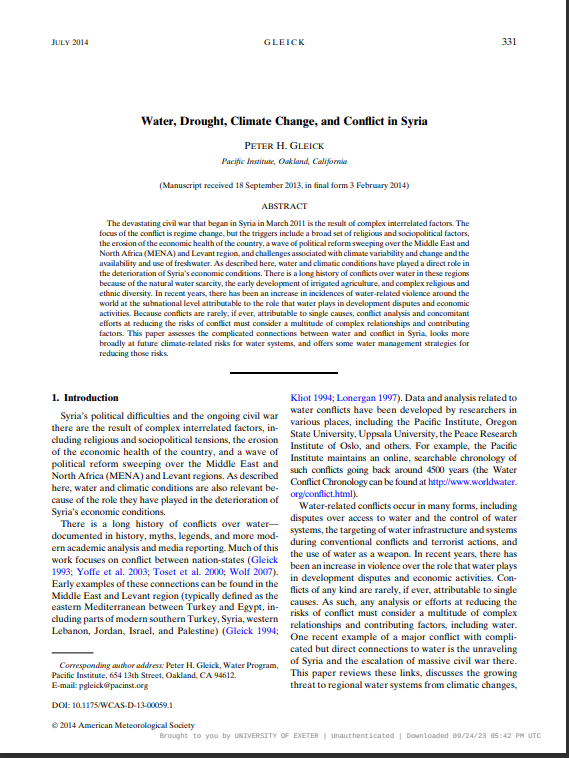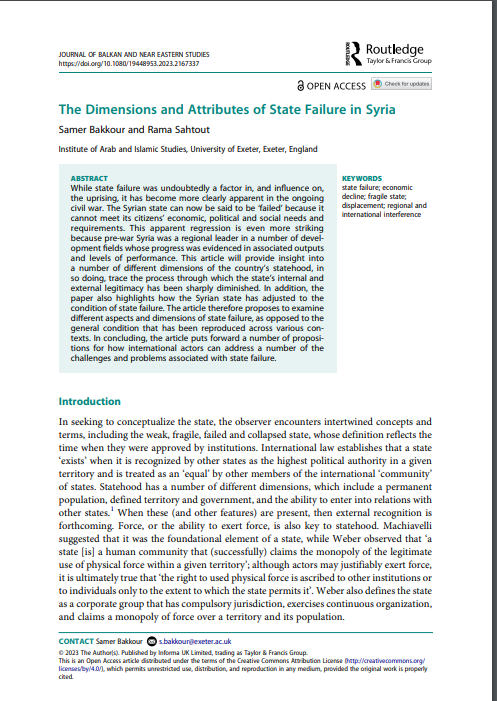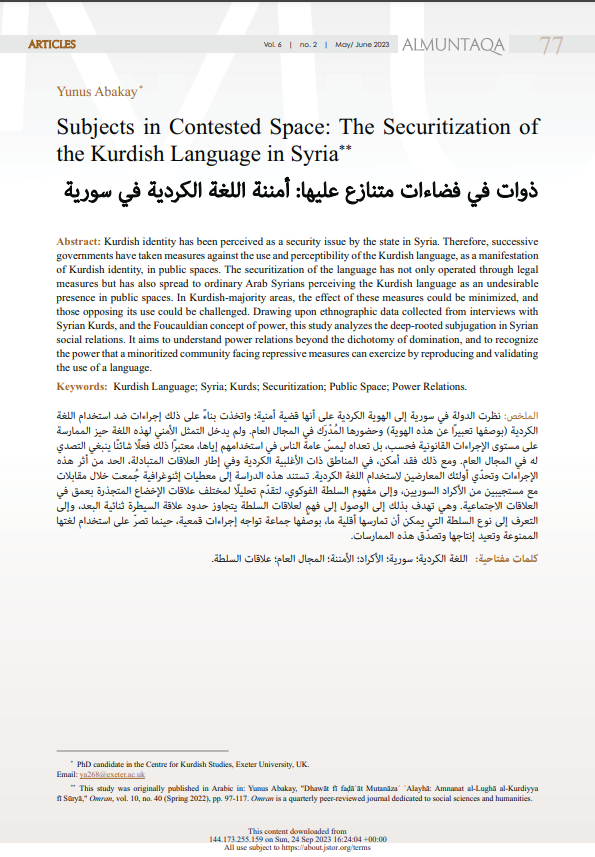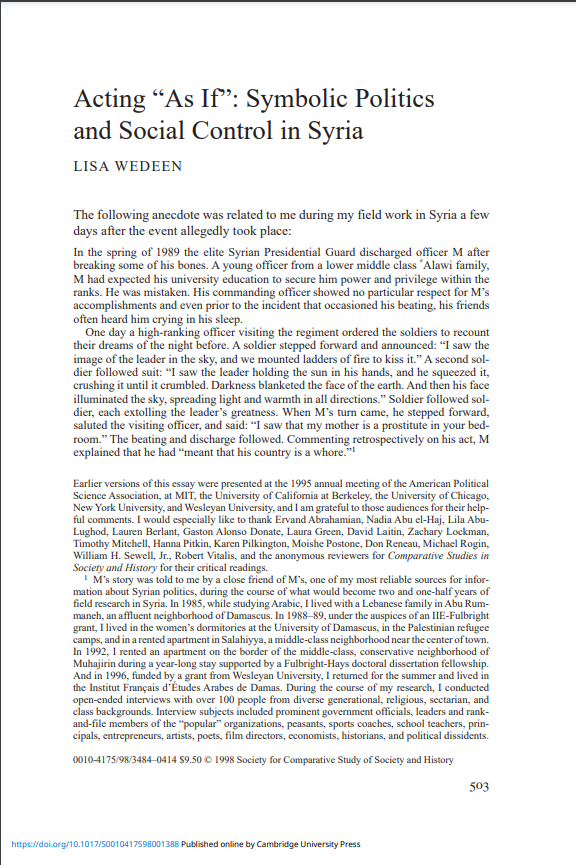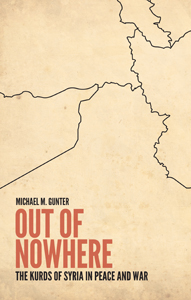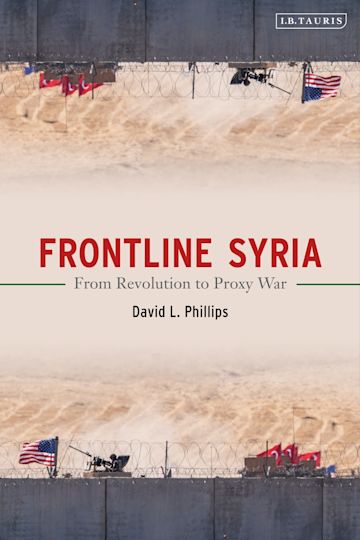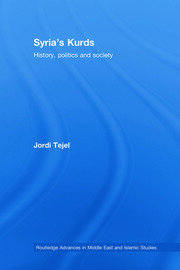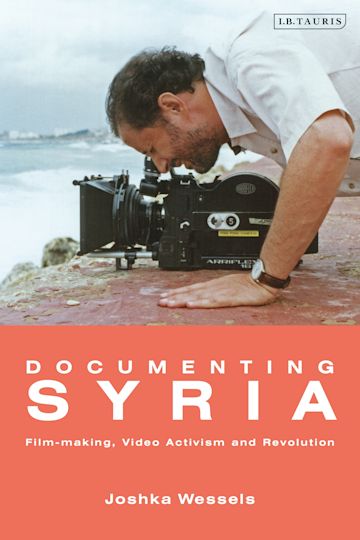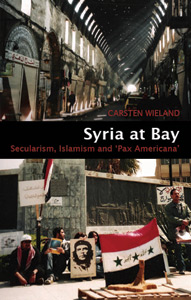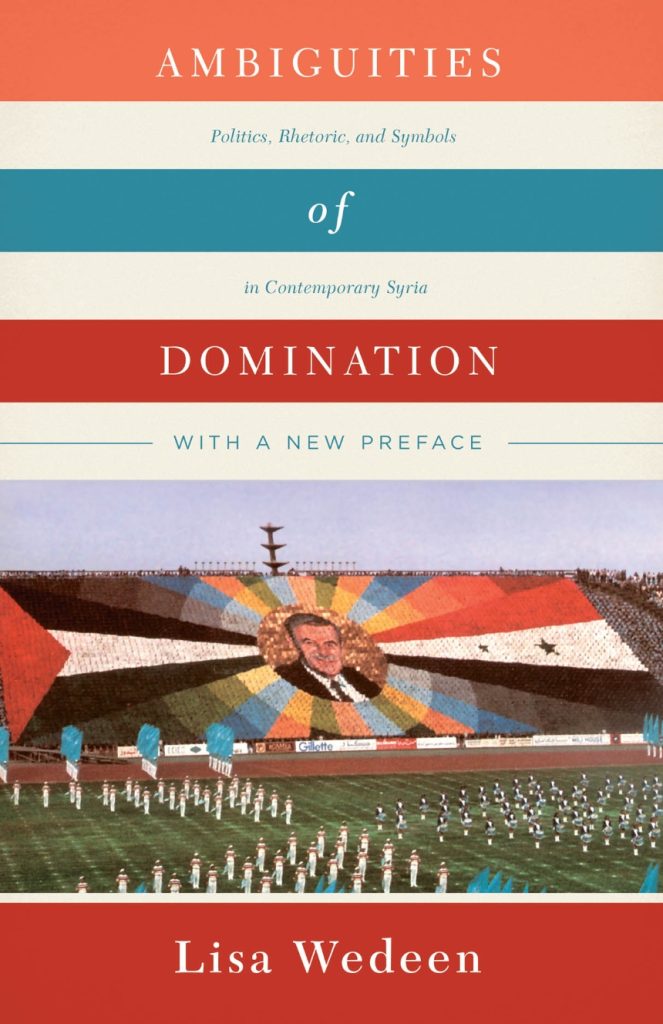Search Results
Content Type: Articles
Abstract / Description
The devastating civil war that began in Syria in March 2011 is the result of complex interrelated factors. The focus of the conflict is regime change, but the triggers include a broad set of religious and sociopolitical factors, the erosion of the economic health of the country, a wave of
Content Type: Articles
Abstract / Description
While state failure was undoubtedly a factor in, and influence on, the uprising, it has become more clearly apparent in the ongoing civil war. The Syrian state can now be said to be ‘failed’ because it cannot meet its citizens’ economic, political and social needs and requirements. This apparent regression
Content Type: Articles
Abstract / Description
Kurdish identity has been perceived as a security issue by the state in Syria. Therefore, successive governments have taken measures against the use and perceptibility of the Kurdish language, as a manifestation of Kurdish identity, in public spaces. The securitization of the language has not only operated through legal measures
Content Type: Articles
Abstract / Description
One day a high-ranking officer visiting the regiment ordered the soldiers to recount their dreams of the night before. A soldier stepped forward and announced: “I saw the image of the leader in the sky, and we mounted ladders of fire to kiss it.” A second soldier followed suit: “I
Content Type: Books
Abstract / Description
In mid 2012 the previously almost forgotten Syrian Kurds suddenly emerged as a potential game-changer in the country’s civil war when in an attempt to consolidate its increasingly desperate position the Assad government abruptly withdrew its troops from the major Kurdish areas in Syria. The Kurds in Syria had suddenly
Content Type: Books
Abstract / Description
When the Syrian regime used sarin and other chemical weapons against dissidents in August 2013, an estimated 1729 people were killed including 400 children. President Barack Obama warned that the use of chemical weapons would constitute a “red line”, but he refused to take military action. Trump’s approach has been
Content Type: Books
Abstract / Description
This book is a decisive contribution to the study of Kurdish history in Syria since the mandatory period (1920-1946) up to nowadays. Avoiding an essentialist approach, Jordi Tejel provides fine, complex and sometimes paradoxical analysis about the articulation between tribal, local, regional, and national identities, on one hand, and the
Content Type: Books
Abstract / Description
Syria is now one of the most important countries in the world for the documentary film industry. Since the 1970s, Syrian cinema masters played a defining role in avant-garde filmmaking and political dissent against authoritarianism. After the outbreak of violence in 2011, an estimated 500,000 video clips were uploaded making
Content Type: Books
Abstract / Description
Immediately after the US-led invasion of Iraq, which was opposed by the Syrian government of Bashar al-Asad, there were real fears that Damascus would be next in line for ‘regime change’. This perception was reinforced by Washington’s rhetoric and its claims that the post-invasion Iraqi insurgency is being assisted by
Content Type: Books
Abstract / Description
Treating rhetoric and symbols as central rather than peripheral to politics, Lisa Wedeen’s groundbreaking book offers a compelling counterargument to those who insist that politics is primarily about material interests and the groups advocating for them. During the thirty-year rule of President Hafiz al-Asad’s regime, his image was everywhere. In

